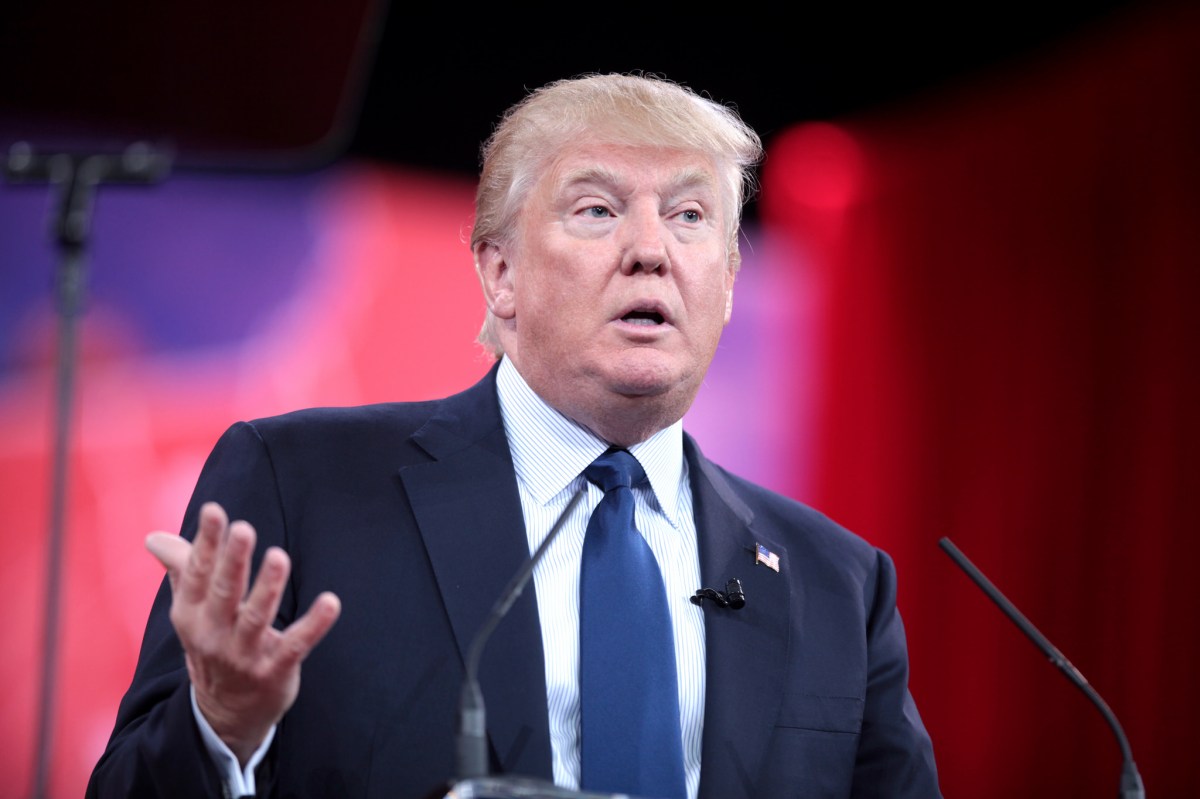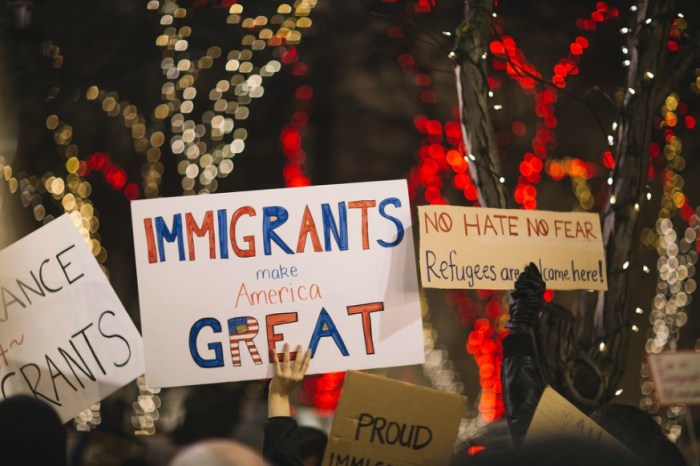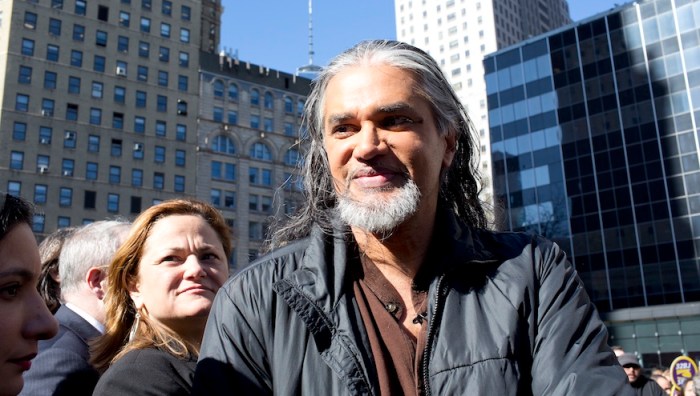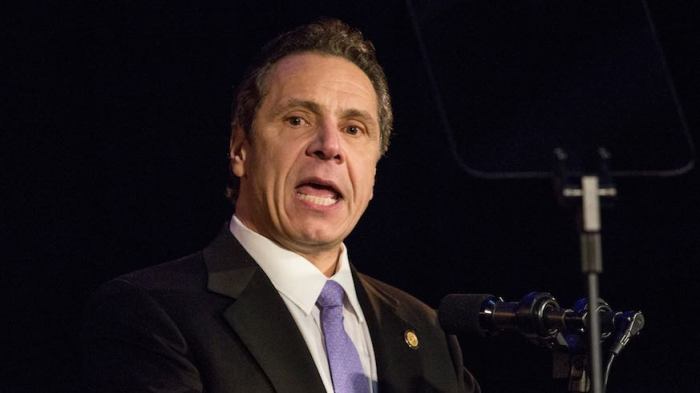The cities of Lawrence and Chelsea are suing President Donald Trump over an executive order that would stop cities from receiving federal funds if they do not comply with federal immigration law.
The suit is at least the second Massachusetts-based legal challenge to an executive order issued by the new president and comes as state lawmakers are determining their own response to the Trump administration and its immigration policies. The complaint, filedWednesdayin U.S. District Court in Massachusetts, describes the order as “a major affront to the basic principles of federalism and the separation of powers.”
RELATED: Sanctuary cities stand strong in the face of funding cuts “The Executive Order seeks, without congressional authorization, to commandeer local officials to enforce the federal government’s immigration policies, and threatens municipalities with crippling losses of funding, apparently including funding for programs with no connection to law enforcement, if the municipalities do not come to heel,” thecomplaintreads. “Particularly for smaller and more impoverished cities and towns, the impact of this Executive Order is both immediate and chilling.” Trump’s Jan. 25 order said sanctuary jurisdictions that “attempt to shield aliens from removal from the United States…have caused immeasurable harm to the American people and to the very fabric of our Republic.” “Tens of thousands of removable aliens have been released into communities across the country, solely because their home countries refuse to accept their repatriation,” the order said. “Many of these aliens are criminals who have served time in our Federal, State, and local jails. The presence of such individuals in the United States, and the practices of foreign nations that refuse the repatriation of their nationals, are contrary to the national interest.” The order directs federal agencies “to employ all lawful means to ensure the faithful execution of the immigration laws of the United States against all removable aliens,” and instructs the attorney general to ensure that municipalities that do not comply with federal immigration law do not receive any federal funding other that what is required by law. Chelsea describes itself as a “sanctuary city” and Lawrence a “Trust Act City,” with both labels indicating a practice the suit describes as “deprioritizing local law enforcement participation in federal civil immigration investigations and detentions.” The suit argues that such policies do not violate federal law, giving the Trump administration no basis for its order, according to the Lawyers’ Committee for Civil Rights and Economic Justice, which filed the suit with the Goodwin law firm. Several other Massachusetts municipalities —including Cambridge, Somerville, Chelsea and Northampton —consider themselves sanctuary cities, which are communities where policies exist to prevent police and other officials from asking about immigration status or to use municipal resources to enforce federal immigration law. State Sen. Patricia Jehlen, a Somerville Democrat, attended a sanctuary city rally in her hometownSaturday, and said in an email newsletterThursdaythat she previously “had not realized how much fear, resentment and even anger there was in our communities toward immigrants.” “And then the president made it visible and gave it permission,” Jehlen wrote. “But I also hadn’t known how much love and support there was. And then people rose up and made it visible.” State Sen. Jamie Eldridge of Acton and Rep. Juana Matias of Lawrence, both Democrats, have filed legislation dubbed the Safe Communities Act (SD 1596 and HD 3052) that would prohibit the use of state “funds, resources, facilities, property, equipment, or personnel for immigration enforcement purposes.” A separate bill, filed by Rep. Antonio Cabral of New Bedford, would prevent the use of state funds for partnerships with U.S. Immigration and Customs Enforcement where local law enforcement performs the functions of federal immigration officers. House Democrats had planned to caucusWednesdayto discuss how the body should respond “to recent actions of the Trump Administration,” but the gathering was postponed due to inclement weather. House Speaker Robert DeLeo saidMondaythat representatives “want to talk about what we can do as a Commonwealth, how we can express our displeasure with some of the actions of the president.” “Obviously federal law will take precedence over any state law, so there’s a question in terms of whether a resolution is in order to express an opinion or is there something that we can do relative to law,” DeLeo told reporters. The state Senate last week passed a resolution urging Trump to “reconsider and rescind” portions of an executive order that halted refugee admissions for 120 days and instituted a 90-day ban on U.S. entry by nationals of Iran, Iraq, Libya, Somalia, Sudan, Syria and Yemen. Both the state of Massachusetts and the University of Massachusetts system have joined a lawsuit against the travel restrictions, which was filed on behalf of two Iranian UMass Dartmouth professors who were detained at Logan Airport last month. Attorney General Maura Healeyon Mondayjoined a coalition of 16 attorneys general on a brief supporting a separate federal lawsuit against the travel ban, arguing the order inflicts harm on states’ educational and medical institutions, tourism and tax revenues along with undermining states’ abilities to enforce their own laws. That suit, filed by the states of Washington and Minnesota, is before the U.S. Court of Appeals for the Ninth Circuit in Seattle.
Chelsea, Lawrence sue Trump over looming funding cuts

Flickr


















